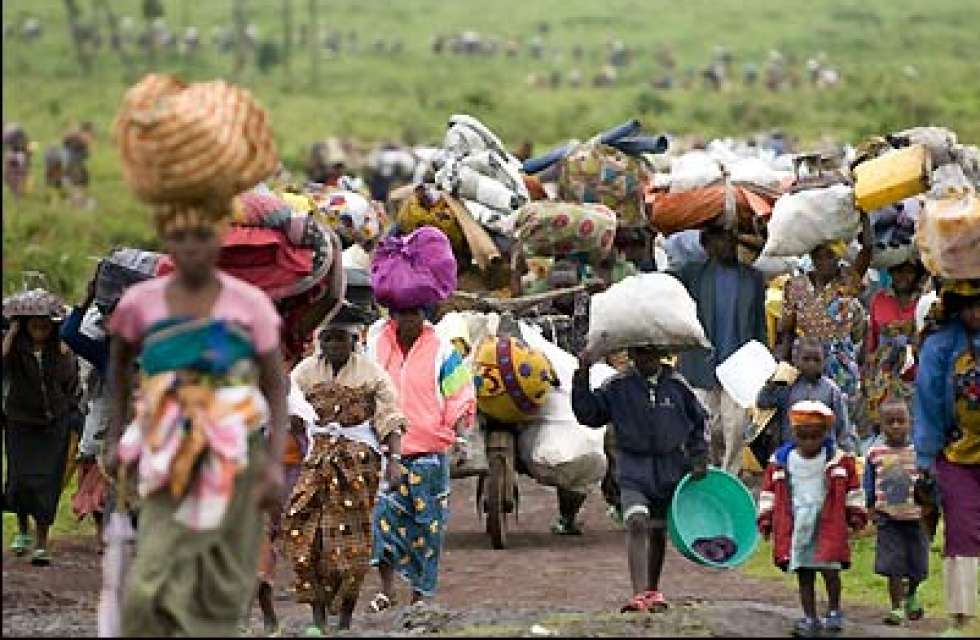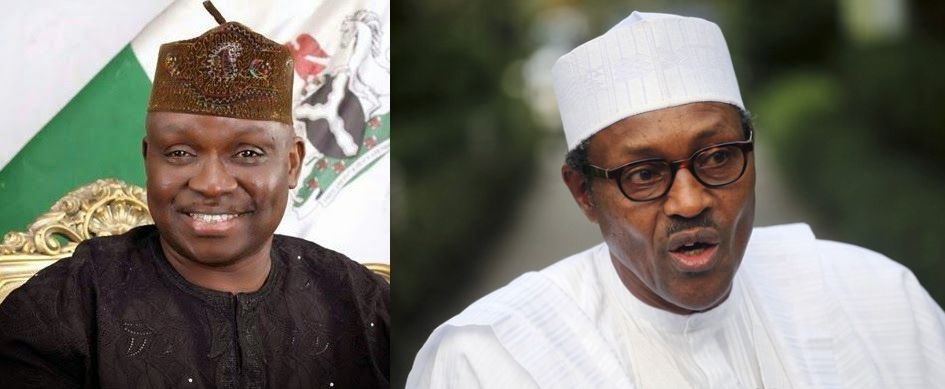The United Nations Development Programme (UNDP) and the Oxford Poverty and Human Development Initiative (OPHI) in a new report released on Thursday said that more Nigerians are multi-dimensionally poorer than a decade before 2017.
The 2019 global Multidimensional Poverty Index (MPI) released today said that of the 1.3 billion people who are multi-dimensionally poor, over two-thirds of them or 886 million live in middle-income countries.
The report revealed that in Nigeria, though the proportion of people who are multi-dimensionally poor has remained constant at just over 50 percent over the past decade, up to 2017, the actual number of people who are multi-dimensionally poor increased from 86 million to 98 million over the same period.
“Also, important to note from the report is that when compared to the national poverty line which measure income/consumption, a larger proportion of Nigerians (51 percent) are multi-dimensionally poor than those that are income poor (46 percent).
“This year’s MPI results show that more than two-thirds of the multi-dimensionally poor – 886 million people – live in middle-income countries. “A further 440 million live in low-income countries. In both groups, data show, simple national averages can hide enormous inequality in patterns of poverty within countries.
“For instance, in Nigeria, even though the national average shows that around 50 percent of Nigerians are multi-dimensionally poor, state and local government levels will reveal a completely different scenario – higher or even lower levels,” the report stated. According to the report, the traditional concept of poverty is outdated, as new data demonstrate more clearly than ever that labelling countries – or even households – as rich and poor is an oversimplification.
“To fight poverty, one needs to know where poor people live. They are not evenly spread across a country, not even within a household. “The 2019 global Multidimensional Poverty Index provides the detailed information policy makers need to more effectively target their policies,” the UNDP Administrator, Achim Steiner said in the report.
The report said that children suffer poverty more intensely than adults and are more likely to be deprived in all 10 of the MPI indicators, lacking essentials such as clean water, sanitation, adequate nutrition or primary education.
Tag: Poor
-

More Nigerians poorer now than decade before 2017 – UN Report
-
Why Northern Nigeria will continue to remain poor – Dangote
African richest and Chairman of Dangote Group of Companies, Alhaji Aliko Dangote has said Northern Nigeria will continue to remain poor except states governments move to close the development gap between the north and the south.
Dangote, who spoke at the 4th edition of the Kaduna Investment Summit (KadInvest 4.0) in Kaduna on Wednesday, berated Northern governors for doing little to end poverty in the region.
According to him: “Nigeria is ranked at 157th out of 189 countries on the human development index. While the overall socio-economic condition in the country is a cause for concern, the regional disparities are in fact very alarming.
“In the North Western and North Eastern parts of Nigeria, more than 60 per cent of the population lives in extreme poverty.
“It is instructive to know that the 19 Northern states which accounts for over 54 per cent of Nigeria’s population and 70 per cent of its landmass, collectively generate, only 21 per cent of the total subnational IGR in the year 2017.
“Northern Nigeria will continue to fall behind if the respective states governments do not move to close the development gap.
“And that is why we are always saying the biggest challenge that we have and what we have been praying for is to have 10 governors like Mallam Nasir El-Rufai to move the northern Nigeria forward.
“Closing the gap requires multi years investment and goverment will not be able to raise the require capital funding, only the private sector can raise the capital to fund the level of investment that this country needs.”
He went on: “Therefore, government must create the conducive environment that will trigger a huge inflow of private capital into attractive sectors of the economy.
“Private investment will create jobs and will ameliorate the twin problem of poverty and unemployment.
“As more people are gainfully employed, you will witness a very sharp decline in some of the disturbing social vices prevalent in our society, especially among the youths.”
While urging other northern states to emulate Kaduna State Government in the investment drive, Dangote said aside the over $500 million investment El-Rufai’s goverment has attracted, Dangote Group is patnering Peugeot of France and Kaduna State government to establish multi-billion naira automobile assembly in Kaduna State.
He also disclosed Dangote Group will be considering investing in dairy production in Kaduna state, saying the trend of importing 98 per cent of milk consumed in Nigeria at the rate of $1.3 billion is unhealthy coupled with the fact that the imported milk is unhealthy.
-
We’ll spend loots recovered from Diezani, Yakubu to feed the poor – FG
The Federal Government has said it will spend loots recently recovered from former Minister of Petroleum Resources, Diezani Alison-Madueke and former Group Managing Director of the Nigerian National Petroleum Corporation, Andrew Yakubu on its social intervention programmes.
TheNewsGuru.com reports that a Lagos Federal High Court, on Thursday ordered the forfeiture of of about N34bn linked to former Minister of Petroleum Resources, Diezani Alison-Madueke.
TheNewsGuru.com also reports that a Federal High Court sitting in Kano presided over by Justice Zainab B. Abubakar on last Tuesday ordered the forfeiture of the sum of $9,772,00 (Nine Million, Seven Hundred and Seventy Two Thousand United States Dollars ) and £74,000 (Seventy Four Thousand Pound Sterling) recovered from Yakubu to the Federal Government.
According to a report by The Punch, a top government official who spoke on condition of anonymity said the $9m recovered from Yakubu and the $153m forfeited Diezani, would be immediately used to fund the welfare scheme for the poor.
The official said the money would be used in paying the N30,000 monthly stipend to beneficiaries of the N-Power scheme, the job creation programme of the President Muhammadu Buhari administration; as well as the school feeding programme.
In the official’s words: “The National Economic Forum has been meeting and we are looking at the idea of investing the recovered funds on the social intervention programme which will gulp hundreds of billions of naira.”
The Federal Government is also on a mission to recover at least N399bn and $6.62bn in cash and assets from the high profile cases being prosecuted across the country.
Documents made available from the Presidential Advisory Committee Against Corruption showed that at least 45 high-profile corruption cases had been taken to court.
The cases stated in the document exclude the $153m recently forfeited to the Federal Government by Alison-Madueke; the $9m case involving Yakubu; the prosecution of a former Director-General of the National Broadcasting Commission, Emeka Mba (N2.8bn); as well as all retired military officials (N40bn).
Some of the high-profile cases stated in the document include an alleged N36bn case involving a former Governor of Jigawa State, Saminu Turaki; a fraud case involving a former Governor of Gombe State, Senator Danjuma Goje (N25bn), and a former Governor of Nasarawa State, Aliyu Doma.
Other prominent cases listed include the Chairman of Atlantic Energy Brass Development Limited and Atlantic Energy Drilling Concept Limited, Jide Omokore, who is standing trial for an alleged $1.6bn fraud; a former Director-General of the Nigerian Maritime Administration and Safety Agency, Patrick Akpobolokemi, who is standing trial before two different courts for alleged N1.6bn fraud and N754.7bn fraud.
The committee also listed the case of the President, NLNG Staff Bonny Co-op Investment and Credit Society Limited, Julius Peters, who is being tried for an alleged N207bn fraud.
The committee defined high-profile cases as cases in which any of the suspects is “a politician, public officer or judicial officer; a person elected or nominated to a public office or position and where the subject matter of the case involves government property or funds.”
-

FG’s N5,000 payment to the poor, another empty promise by APC – Fayose
Governor Ayodele Fayose of Ekiti State has discredited the Federal Government’s claim of the payment of N5,000 to indigent Nigerians, describing it as another empty promise by the ruling All Progressives Congress, APC.
He said: “A blind man will say it is when it gets into my mouth that I will say you are feeding me, not promises.”
The governor, in a statement on Tuesday in Ado-Ekiti by his Chief Press Secretary, Mr. Idowu Adelusi, said there was no evidence of the payment in his state, which was one of the states the federal government claimed the exercise had started.
Fayose said apparently, the states they claimed had started receiving the payment were APC-controlled states, knowing that the governors cannot come out to disprove the payment.
The governor stated further that the All Progressives Congress (APC) government led by President Muhammadu Buhari should come to the reality that Nigerians were hungry and also angry and that they were no longer interested in empty promises.
He also explained that the people had realized that the APC government only operated by deceit and that Nigerians were running out of patience.
Fayose challenged the government to publish the number of people receiving it and their accounts
He insisted that the economic policy of the federal government ahead of the 2019 elections was on how to entrench themselves in power and not on the welfare of Nigerians.
He condemned the N2Bn to be spent on entertainment alone in the Villa in the 2017 budget.
While calling on the federal government to put a proper economic team, beyond party line in place to salvage the economy of Nigeria, which he said was already on the floor as many businesses had been closed down.
He appealed to the President not to allow Nigerians die before the so-called benefit and ‘change’ comes to bear on them.
He explained that the “federal government’s N5,000 payment to the poor was designed in a way that the state governors are also involved because they are to clear and present prospective beneficiaries before payments are made.”
Recall that the federal government in a statement on Monday said: “Funds for the commencement of the payments in four states were released last week to the Nigeria Inter-Bank Settlement System (NIBSS) – the platform that hosts and validates payments for all government’s social intervention programmes. Funds for another set of five states to complete the first batch of nine states would follow soon.
“Though the sequence for the payment of the money would be operationally managed by NIBSS, beneficiaries in Borno, Kwara and Bauchi States have started receiving the money. The other states in the first batch to commence the CCT payments are Cross Rivers, Niger, Kogi, Oyo, Ogun and Ekiti States.”